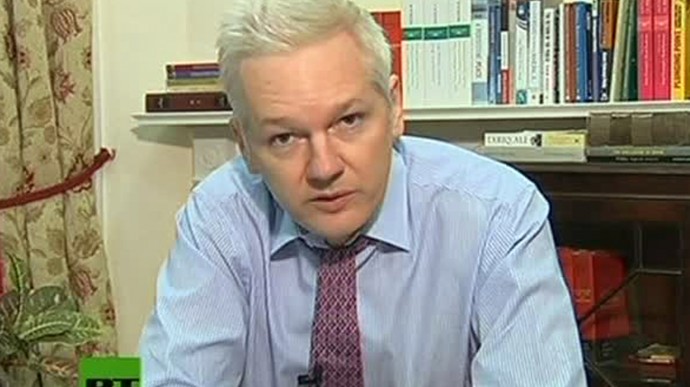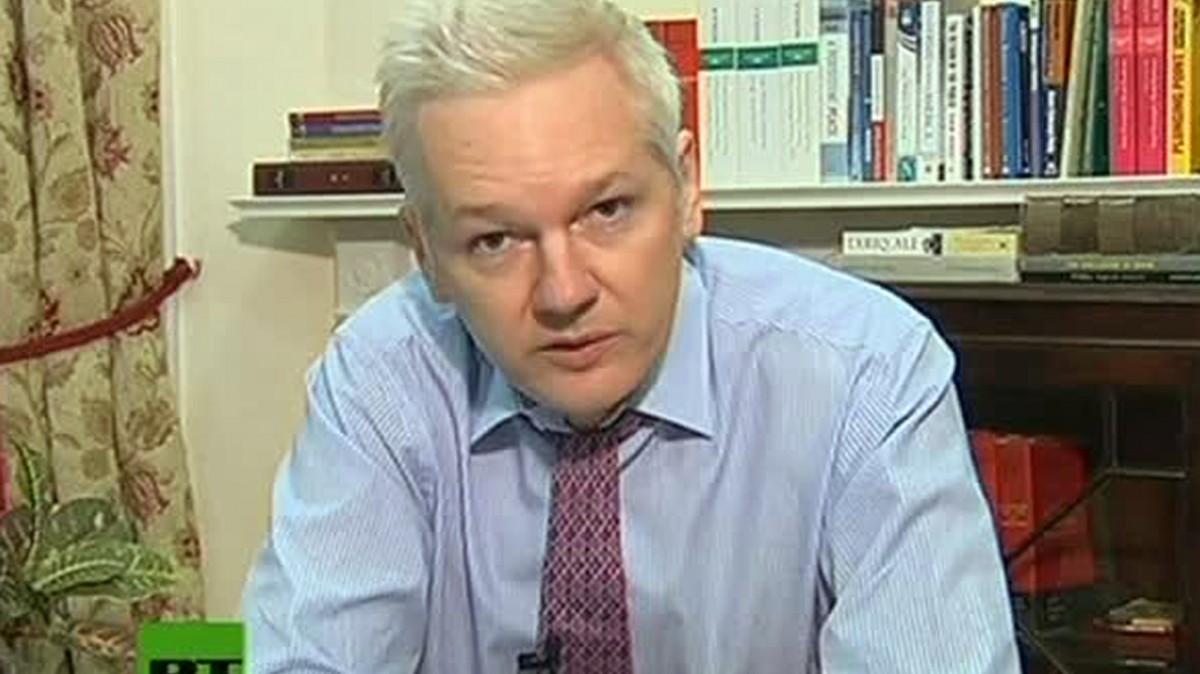
(NEW YORK) MintPress — Despite being holed up at the Ecuadorian Embassy in London, where he has been granted diplomatic asylum by the country’s government, WikiLeaks founder Julian Assange has had a busy week.
On Wednesday, he received a visit from fashion designer Vivienne Westwood, who was wearing the T-shirt she closed her recent London Show with, bearing the words “I am Julian Assange.” The meeting came just two weeks after singer Lady Gaga paid the 41-year-old Australian whistleblower her respects following the launch of her new perfume at the neighboring Harrods department store.
Then, on Thursday, Assange announced that WikiLeaks is again releasing American military documents in the website’s first publication of leaked U.S. government secrets in more than a year.
Assange said there would be a progressive release of more than 100 U.S. Department of Defense (DoD) files setting out rules and procedures for interrogating detainees in military custody.
At the same time, a senior Ecuadorean diplomat said the country is worried about Assange’s health and has asked Britain to guarantee him safe passage to hospital if he needs medical treatment.
“Assange has visibly lost weight and we are very concerned for his health,” said Vice Foreign Minister Marco Albuja Martinez in an interview.in Moscow. “If he falls ill, we will have to choose between two alternatives – to treat Assange in the embassy or hospitalize him.
“This is a very serious situation and it can affect Assange’s human rights,” he continued.
In limbo
Assange was a hacker-activist in his youth, before becoming a computer programmer and then internationally known for his work with WikiLeaks in 2010 when, with its partners in the news media, it began to publish leaked U.S. military and diplomatic documents.
Soldier Bradley Manning was later arrested on suspicion of supplying the cables to Assange and WikiLeaks, who have been designated as “enemies of the United States” by the DoD.
The Department of Justice (DoJ) is still investigating whether Assange can be prosecuted.
Since December 2010, Assange has been subject to a European arrest warrant in response to a request by Swedish police to question him about accusations of rape and sexual assault, which he denies.
In early June 2012, Britain’s Supreme Court dismissed Assange’s appeal against enforcement of the warrant, and on June 19 he breached his bail conditions, fleeing to Ecuador’s Embassy.
The British government plans to extradite Assange to Sweden under the arrest warrant once he leaves the embassy, and Assange says he is afraid that could result in his subsequent extradition to the U.S. to face charges over the leaked cables.
“As a result of the government of Britain’s not giving safe passage, Julian Assange’s health most certainly is beginning to be jeopardised and this is very serious,” said Ecuador’s Foreign Minister Ricardo Patino.
“We had hoped that the British government would defend and respect human rights and international law,” he added.
Patino said that as well as asking for assurances over a possible hospital stay, he had requested a meeting with British Foreign Secretary William Hague over health concerns.
The U.K. Foreign Office acknowledged that Patino had “expressed interest” in meeting with Mr Hague “and we are waiting for him to suggest suitable dates.”
“We remain fully committed to seeking a diplomatic solution with the government of Ecuador, but we must ensure that our laws are respected and followed,” said a spokesperson.
“The U.K. authorities would not prevent Mr Assange from receiving any medical care that he requires.”
New leaks
Assange said in a statement that the newly released documents exposed military detention policies at camps in Iraq and at Guantanamo Bay following the 9/11 attacks.
Among the documents is the 2002 manual for staff at Camp Delta at Guantanamo, shortly after it was set up by President George W. Bush to house alleged al-Qaida and Taliban detainees from the war on terror.
“This document is of significant historical importance. Guantanamo Bay has become the symbol for systematized human rights abuse in the West with good reason,” stated Assange.
‘The ‘Detainee Policies’ show the anatomy of the beast that is post-9/11 detention, the carving out of a dark space where law and rights do not apply, where persons can be detained without a trace at the convenience of the U.S. Department of Defence,” he added.
“It shows the excesses of the early days of war against an unknown ‘enemy’ and how these policies matured and evolved, ultimately deriving into the permanent state of exception that the United States now finds itself in, a decade later.”


